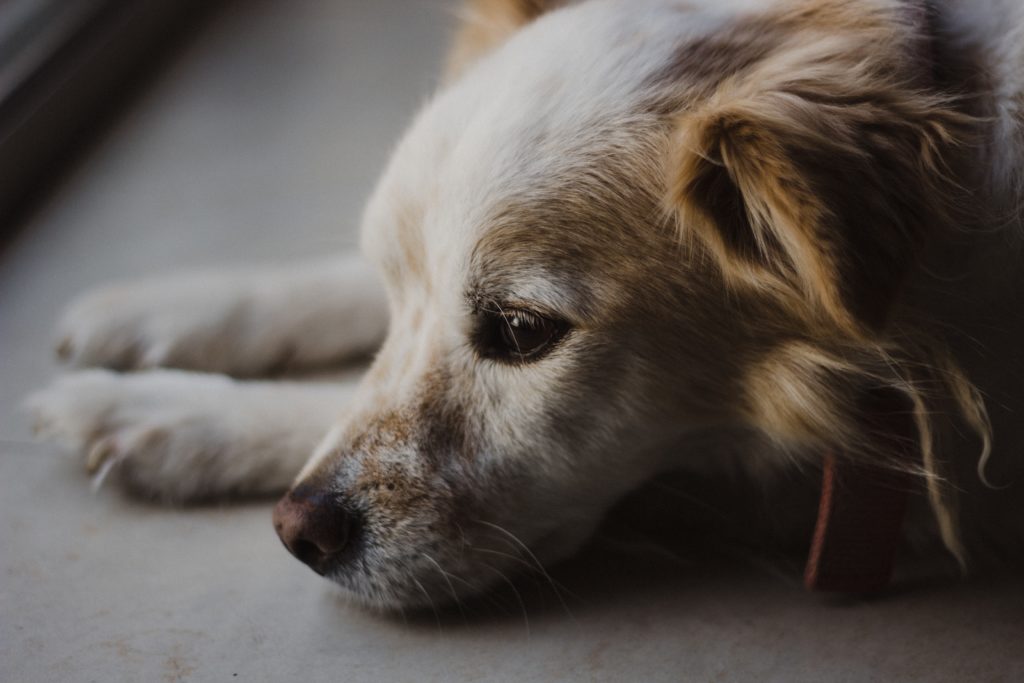Let me get straight to the point and why you clicked on this blog post- there is a condition that is a top killer of dogs, especially those of large breeds that no one has warned you about. (It can even effect small dogs and some cats)
The condition is called gastric dilatation/volvulus (GDV) or commonly known as bloat.

Bloat occurs when there is a rapid accumulation of air in the dogs stomach causing them to “bloat”
Sometimes feeling bloated for humans can be normal after a large meal, but for dogs with GDV it can become life threatening, fast.
In some cases the dogs stomach will rotate, a condition called gastric dilation volvulus. When this happens it can send your dog into shock as it traps blood in the stomach and blocks it from returning to the heart.
Symptoms of Bloat
- Drooling
- Become anxious
- Acting restless
- Swollen stomach
- Looking at their stomach
- Pacing
- Try to vomit, but nothing comes up
As the stomach expands it begins to put pressure on other organs. This can cause dangerous problems, including: no blood flow to the heart and stomach lining, tear in the wall of the stomach or a hard time breathing. If left untreated, GDV in dogs can cause death.
If The Condition Gets Worse
- Pale gums
- Elevated heartbeat
- Collapse
- Short of breath
- Feel weak/ unable to properly walk
- Death
Unfortunately, the length of time you have to get your dog the medical care they need depends on the dog and the severity of the case. Some dogs can suffer for days at a low level before it progresses, others become dangerous FAST.
In many acute cases, surgery is the only option to save their life. When this happens, the stomach needs to be re-positioned. The vet may also tack the stomach to the abdominal wall in a procedure called gastropexy. When this is done, it is impossible for the stomach to rotate again in the future but the animal could still experience bloating again.
Causes of Bloat
Vets aren’t sure what causes bloat, but there are some things that raise a dog’s risk for it, including:
- Eating from a raised food/water bowls
- Having one large meal a day
- Eating too fast
- Running or playing after eating (this is debated upon vets)
- Related to dogs who have had bloat (hereditary)
- Stress
Prevention of Bloat
Since vets don’t know exactly what causes bloat, it is hard to give definitive preventative measures.
Here are some things that may help.
- Not having raised food and water bowls
- Feeding more than once a day- smaller meals throughout the day
- If your dog tends to eat fast or doesn’t chew, try using a slow feeder bowl or putting their food in a kong to help slow them down while eating
- Although this is debated to whether it can cause bloat or not you can try limiting your dog’s exercise right after they have just ate a meal
- If you got your dog from a breeder, ask if any of their parents or related litters have experienced bloat so you have the knowledge of whether your dog may be predisposed to the condition
- Stress can be a factor in dogs developing bloat, watch your dogs in situations of stress/ make sure dog sitters and kennels are aware of bloat so they can watch for the symptoms
- Some studies show feeding dogs more whole and raw foods are found to help prevent GDV
What to do if you think your dog/cat has bloat
Bloat is a veterinary emergency
Get your pet to a vet ASAP if you think they may have bloat.
I have a small dog/cat, do I still have to watch for bloat?
Although GDV is much more common in deep-chested, large breeds, any dog can develop bloat, even some cats!
Some breeds with the highest risk are Great Danes, Gordon Setters, Irish Setters, Standard Poodles, Weimaraners, St. Bernards., Akitas, Boxers, Bassett Hounds, and German Shepherds.
In Review
1) Watch for the following symptoms in your pet: Acting restless, drooling, swollen stomach, anxious, pacing, looking at their stomach, in discomfort, trying to vomit but nothing comes up.
2) If you suspect your pet may have bloat, get them to the vet ASAP
Please share this post so other pet owners can be informed about bloat and know the symptoms!
Additional Resources
For more in depth information on GDV/bloat check out this artical by The Whole Dog Journal
For the risk factors of canine bloat check out this article by Jerold S. Bell, DVM
-Savana

